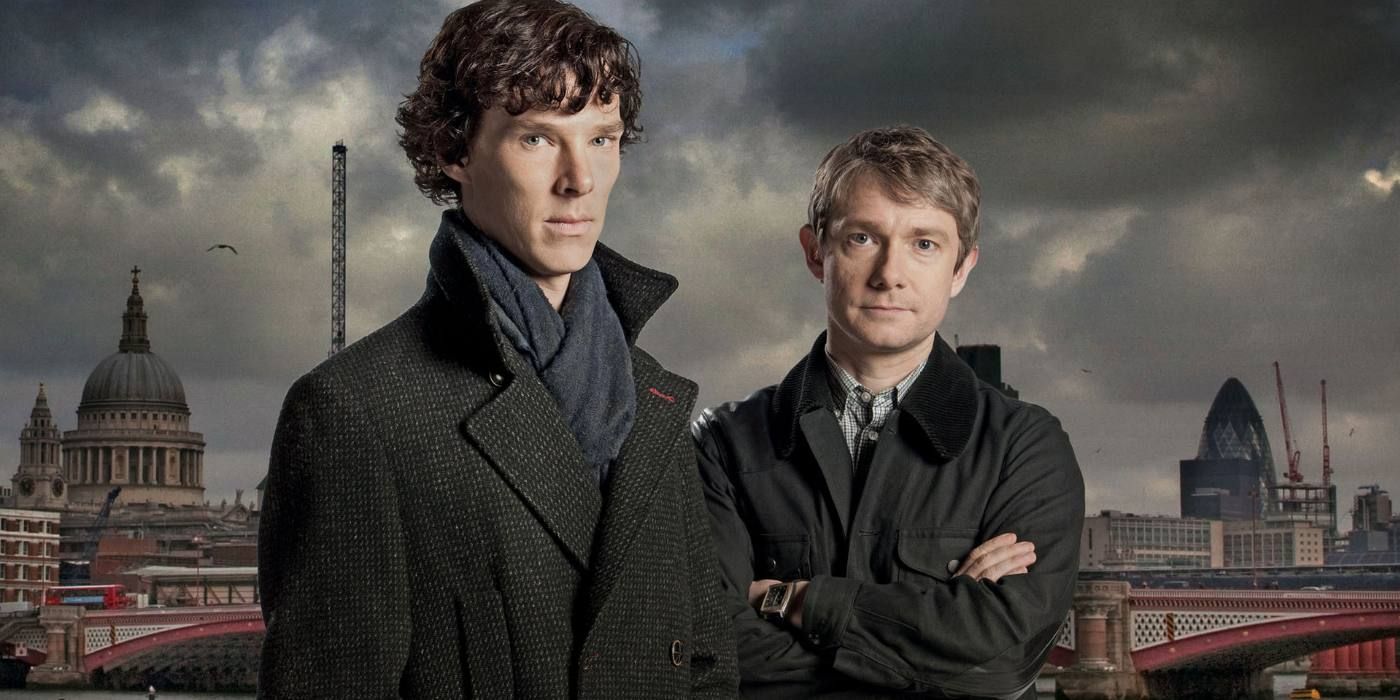Ever since the first Sherlock Holmes story, A Study in Scarlet, was published in 1887, the character has remained popular. Television series, numerous films, and theater productions about the incredibly intelligent and observant detective and his faithful sidekick John Watson have been a constant for over a century. In 2010, the BBC aired the first three episodes of a show with a new take on the classic characters. Sherlock.
Set in the modern world, with Google, blogs, and smartphones at their disposal, Sherlock Holmes and John Watson solve the classic crimes (and occasionally an original one) with a contemporary twist. The show also focuses strongly on many of the more negative aspects of the detective, such as his drug use and severe anti-social nature. Sherlock has mentioned that Holmes is on the autism spectrum and many fans also theorize that he is asexual. In only three ninety-minute episodes, Benedict Cumberbatch became a household name and the popularity of Watson actor Martin Freeman, best known for the British version of The Office, also significantly increased.
The fourth season has just ended, and some fans are not as enamored as they once were, complaining that the show is "too complicated." Series co-creator Mark Gatiss (who also writes for the show and stars as Sherlock's older brother Mycroft Holmes) spoke to the Daily Star about that complaint:
"People ask if it’s good to challenge the audience. Of course it f***ing is. Why would you not want to challenge your audience?...I did a phone-in after the Christmas special a few years ago and someone said it was too complicated for people to follow. I said ‘oh, go and pour some warm paste into your mouth’. If you don’t want to be challenged, don’t watch it. It’s a complex and entertaining programme...Go and read a children’s book with hard pages if you don’t want to be challenged. We’re making the show we want to make. We don’t make it a certain way because fans are pressuring us."
Based on Gatiss' comments, he and co-creator Steven Moffat are not planning on simplifying the show anytime soon, even if they lose viewers. The season 4 finale was expected to pull high ratings but didn't, though the reason why is possibly more complicated than one might expect. Gatiss also spoke about the various cliffhangers and mysteries that Sherlock is known for:
“You can’t leave things lying around because otherwise things can get out. Everything is watermarked... There is a big crew and a lot of people are involved. Things can easily slip out. It is hard to pull off a shock. All soap twists are flagged up three weeks before they air. Why don’t they have some faith in the audience and pull the rug out from under them? When you pull off one of those moments it is genuinely thrilling.”
Largely because of the demand on both lead actors - Cumberbatch and Freeman starred in The Hobbit films and are part of the Marvel Cinematic Universe - Sherlock goes years in between seasons. In almost seven years there have only been four seasons and thirteen 90 minute episodes. This means each episode is almost like a small movie, and each mystery needs plenty of twists and turns to keep the audience from figuring it out too quickly. Gatiss also recently revealed that the newly aired fourth season may very well be the last.
For more news about Sherlock and whether there will be more episodes in the future, keep checking in with Screen Rant.
Source: Daily Star


